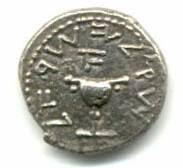The Bicentennial of the War of 1812 is causing a new burst of histories to be written about this almost forgotten war.
1812: The Navy's War by George C. Daughan, also available in a Kindle edition
, published in 2011 is a very good one indeed.
First, the book for your reading enjoyment provides a wonderful diagram of a sailing ship, identifying every mast and sail, which makes understanding what happened when a sea battle took place and why it mattered much easier. Now you'll understand what it means to have a topgallant shot off.
The book also has an extensive glossary. If you ever wondered what a Razee is and why a brig might run away from it, among many other terms, you'll know. In addition, the maps are excellent in showing the various naval and land battlefields.
The book begins with the causes of the war - The British restrictions on American trade with Europe and the impressment of thousands of American sailors. High-handed acts of impressment including boarding even US Navy ships to shanghai sailors served to inflame American opinion against the British. Conditions upon British ships of the time were so terrible for ordinary sailors, and by contrast much better aboard US navy and US merchant vessels that impressment was a necessity to keep the British navy functioning in the war against Napoleon as the idea of improving service conditions for British sailors never took hold in the Admiralty or among its political leaders at the time.
The book then outlines how unready and ill-prepared America was for this war - a theme we will see repeated through the beginnings of World War 1, World War 2 and Korea and likely will experience again.
The US started the war with a navy that was tiny, with no ships of the line, was about to take on the greatest maritime power of the day. It went to war with an army that was tiny and without adequate supplies, with leaders chosen more for political reasons than for any military genius, and was supplemented by militia that were ineffective or in the case of the New England militias, that often had ties and loyalties to Britain and refused to cross the border to invade Canada.
The book covers the impressive success of the American Navy's heavy 44 gun frigates, and the often overlooked success of her privateer commerce raiders that together forced the British to take American maritime power seriously. American privateers operated extensively off the coast of Great Britain and Ireland, capturing British merchant ships in her own backyard. The privateers also competed with the navy for sailors - offering better pay and prize money that the navy.
The book also notes how the New England states, even as the war was going on, would not only trade with the British but even sold provisions to the blockading British ships and troops.
The book covers not only all of the major and many minor maritime engagements of the war as well as the land campaigns and how they were interrelated with the state of war at sea. Control of the Great Lakes, considering the terrible state of roads in the Michigan, Ohio and other wilderness territories was vital to get troops where they needed to go. The book details British plans to hem in and divide the US, with such plans ending after some effective American naval victories and the American victory at the Battle of New Orleans that occurred after the peace treaty was signed.
The belligerents then returned to the status quo that existed before the beginning of the war, but the reputation of the US Navy had been well established.
The book concludes with the US Navy's successful battles against the Bey, the Deys and Basha in the Second Barbary War in the Mediterranean - ending the US payment of tribute to these Muslim pirates and leading to a US naval presence in the Mediterranean that continues to this day.
A very well-written book that thoroughly examines the political, nautical and military history of the War of 1812 timely completed for the bicentennial anniversary of the conflict. Highly recommended.

2 comments:
Sounds like although it focuses on the water, it might offer a good general history as well, which I've been looking for. Thanks for the review.
Yes, its a great overall history of the war. It covers the causes, politics, economics, military science of the era and the ground campaigns- which were heavily intertwined with the naval ones.
Post a Comment